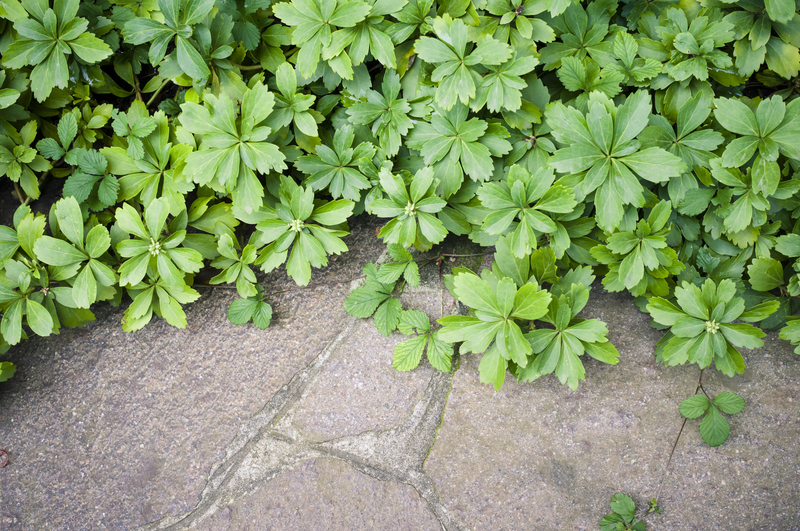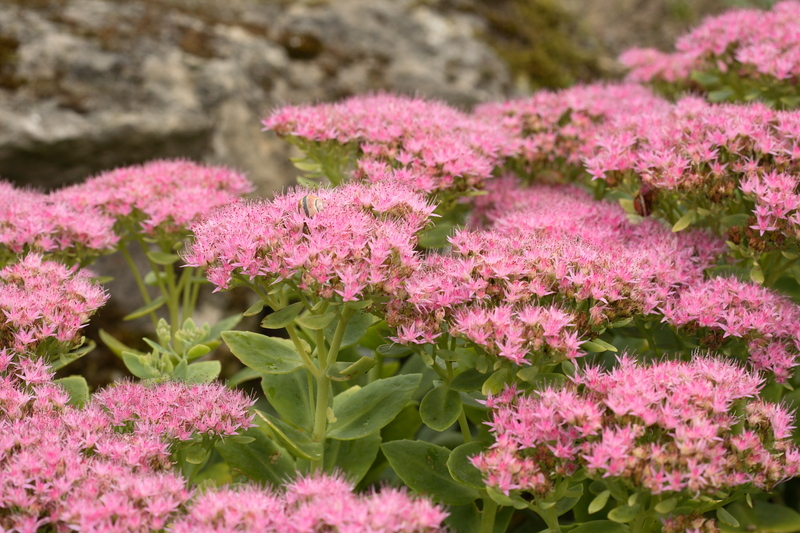Beginner's Guide to Gardening: 9 Tips You Need to Know
Posted on 02/07/2025
Beginner's Guide to Gardening: 9 Tips You Need to Know
Are you eager to nurture a lush garden, but feeling unsure where to begin? Starting a garden can seem overwhelming, but with the right guidance, anyone can transform their outdoor or indoor space into a thriving green haven. Gardening for beginners is a rewarding journey, offering relaxation, fresh produce, and a closer connection to nature. In this comprehensive guide, we'll break down fundamental gardening tips for beginners to help you dig in, plant roots, and watch your garden flourish!
Why Gardening is Great for Beginners
First-time gardeners often find joy not just in watching plants grow, but also in the many benefits gardening provides. Whether you have a spacious backyard or a small apartment balcony, gardening can:
- Reduce stress and improve mental well-being
- Encourage physical activity and movement
- Supply fresh herbs, veggies, and flowers
- Create beauty and pride in your living space
- Connect you with nature and your community
Armed with our top beginner gardening tips, you'll discover how simple, fun, and fulfilling gardening can be.

Essential Gardening Tips for Beginners: Top 9 You Need to Know
1. Select the Right Location
Great gardens start with the right spot. Most beginner gardeners are tempted to plant wherever there's open space. Instead, pay careful attention to:
- Sunlight: Most veggies and flowers need 6-8 hours of sunlight daily. Observe your yard or balcony to note the sunniest areas.
- Drainage: Avoid low spots where water pools or the ground stays soggy; roots need air as much as water.
- Accessibility: Make sure your garden bed or pots are easy to reach for watering, harvesting, and maintenance.
If space is limited, don't worry! Container gardening or vertical gardening are excellent, manageable choices for new gardeners.
2. Know Your Soil
Healthy soil is the foundation of every successful garden. Before you plant anything, take time to examine your soil:
- Texture: Sandy soils drain too quickly, while clay soils hold water. Aim for a loamy, crumbly feel.
- Nutrients: Use a simple soil test kit from your garden center to check for pH and nutrient levels.
- Organic Matter: Mix in compost or aged manure to enrich your soil and support healthy plant growth.
If your soil is poor or contaminated, opt for raised beds or container gardening. Filling them with quality potting mix puts you in control of the growing environment.
3. Choose the Right Plants
One of the most important gardening basics is knowing that not all plants thrive everywhere. For gardening beginners, sticking to easy-to-grow, local plants sets you up for success.
- Read plant tags and seed packets for sun, water, and spacing requirements.
- Pick varieties suited to your climate and USDA Hardiness Zone.
- Start with hardy choices like herbs (basil, parsley), leafy greens (lettuce, spinach), or popular flowers (marigolds, zinnias).
For a low-maintenance beginner garden, choose native plants. They naturally resist pests and demand less care.
4. Learn When and How to Plant
Timing is crucial in gardening. Each plant has its ideal planting window based on local weather and frost dates.
- Check local gardening calendars or consult your nursery for recommended planting dates.
- Start seeds indoors if your growing season is short, or sow them directly into the soil as advised.
- Follow proper planting depth and spacing to ensure good airflow and healthy growth.
Remember that patience pays off--seeds and seedlings need time to settle in and establish roots.
5. Master Watering Techniques
Watering mistakes are a common downfall for beginner gardeners. Both overwatering and underwatering can stress or kill plants. Keep your new garden healthy by:
- Watering deeply and less frequently to promote strong roots.
- Watering early in the morning to reduce evaporation and risk of disease.
- Feeling the soil--water only when the soil is dry a finger's length down.
Mulching around plants helps retain moisture, stabilizes temperature, and reduces watering needs.
6. Use Mulch to Your Advantage
Mulch is a game-changer for any beginning gardener. It's a simple protective layer--wood chips, straw, grass clippings, or even shredded newspaper--spread on top of soil.
- Mulch conserves soil moisture
- Regulates soil temperature
- Suppresses weeds and keeps garden beds tidy
- Adds organic matter as it breaks down
Apply 2-4 inches of mulch around your plants, keeping it a few inches from stems or trunks to prevent rot.
7. Feed Your Plants Regularly
Just like people, plants need regular meals! Fertilizing the right way is essential for bountiful flowers and vegetables. Here's how:
- Start with compost-rich soil to provide a strong nutrition base.
- Use slow-release or organic fertilizers according to specific plant needs.
- Avoid overfeeding (especially with synthetic fertilizers), which can burn roots and harm beneficial soil life.
TIP: Liquid seaweed or fish emulsion can give plants a gentle growth boost, especially during the growing season.
8. Keep an Eye on Pests and Diseases
Even the best-tended gardens can attract bugs or fall sick. Early detection and prevention are key for new gardeners.
- Inspect plants daily for holes, discoloration, or wilting
- Encourage beneficial insects (like ladybugs) to control pests naturally
- Remove sick or infested leaves promptly
- Use organic pest management--like neem oil or insecticidal soap--as a last resort
Healthy, well-fed plants are the best defense against most garden problems. Don't panic over the first signs of damage--most issues can be managed with simple solutions.
9. Embrace Patience & Keep Learning
Perhaps the most important tip for beginner gardeners is to embrace patience and the learning process. No garden is perfect--mistakes happen, and that's part of the fun!
- Keep a simple garden journal to record what works and what doesn't.
- Ask questions and connect with local gardening groups or neighbors.
- Try new plants, techniques, and layouts each season to expand your skills.
Remember: every gardener was once a beginner. With time, observation, and enthusiasm, your thumb will get greener each year.
Extra Tips for Effortless Beginner Gardening
- Start Small: Focus on a few pots or one raised bed to build confidence and experience.
- Invest in the basics: A good trowel, pruners, gloves, and watering can make gardening easier and more enjoyable.
- Label your plants: It's easy to forget what you've planted (and where)! Use markers or stakes to stay organized.
- Take time to enjoy your garden: Sit back, relax, and appreciate the beauty and life you've nurtured.

Common Questions About Starting a Garden
What's the easiest way for beginners to start gardening?
Starting a garden in containers or small raised beds lets you control soil and placement while keeping things manageable. Choose low-maintenance plants, and follow the sun and watering tips above!
When's the best time to plant?
The best planting time depends on your climate and what you're growing. Generally, spring is ideal for most crops, but check local frost dates and use seed packets for guidance.
How much time does a beginner garden require?
A small garden can thrive on as little as 15-30 minutes a few times per week. Consistency is key--water, weed, and check plants regularly for best results.
What if I make mistakes?
Don't worry! Every gardener--novice or expert--faces setbacks. Learn, adjust, and keep growing. Each mistake is a lesson in what works best in your unique space.
Conclusion: Your Gardening Adventure Starts Now
Gardening for beginners is an adventure filled with learning, growth, and joy. With these 9 essential tips, you're equipped to plan, plant, and nurture your first garden. Remember to start small, be patient, and, most importantly, have fun.
There's no wrong way to begin--just the first seed, the first plant, and then the first bounty of blooms or homegrown veggies. Bookmark this beginner's guide to gardening, and come back whenever you need inspiration or advice.
Now, grab your gloves and get growing! Happy gardening!
Latest Posts
Design Elegant Seating Areas with Our Garden Guide
How Your Garden Can Be a Climate Change Ally
Evergreen Climbers for Shade: Perfect Solutions for Shady Hideaways

